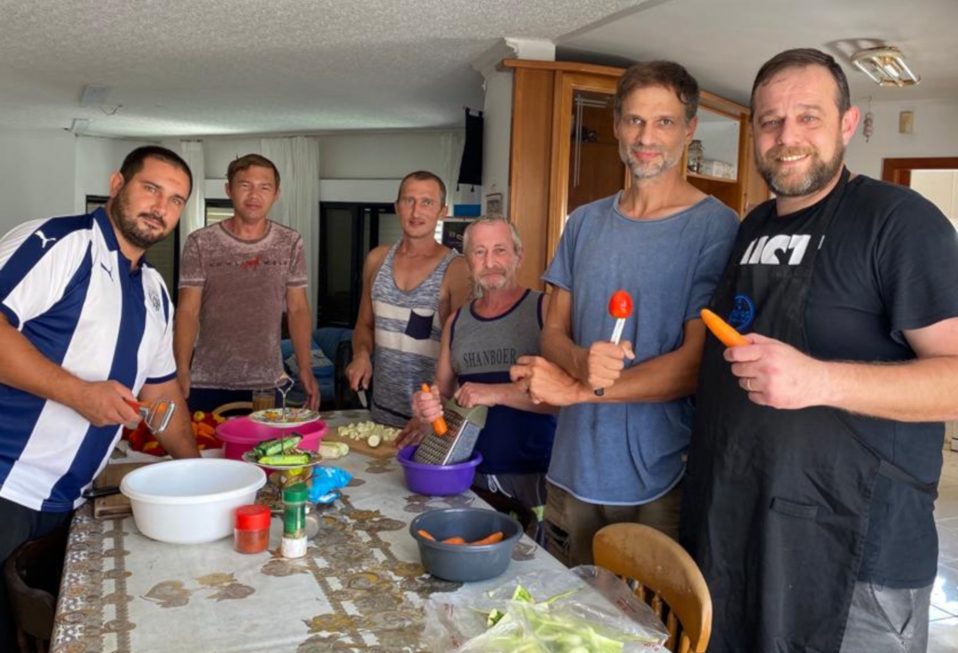By Arlene Bridges Samuels
Most American taxpayers are distressed by the way the United States Congress wheels and deals with our national budget. While members of Congress jockey for political advantage, the unwieldy budgets have now contributed to a colossal $28 trillion debt at this writing.
Nevertheless, despite its recurring budget power-struggles and often reckless policies, Congress gets it right with one aspect of our budget every year: security aid to Israel. Last Thursday, the U.S. House Appropriations Committee—both Democrats and Republicans—approved its 2022 foreign aid bill, which includes $3.3 billion for Israel’s security aid. It is heartening to know that the U.S. Congress at least operates with wisdom when it comes to Israel’s security.
While the $3.3-billion price tag may come as sticker shock to some, in fact it is both a bargain and a smart investment. This one expenditure repays more than we contribute in our partnership with the Middle East’s only democracy. In fact, Israel and the U.S. enjoy close, significant cooperation in homeland security, cybersecurity, space, import/export dollars, intelligence, healthcare, scientific studies, energy and water advances, border and maritime security, and much more.
Bipartisan members of the U.S. House Appropriations Committee may not be sitting in their meeting with open Bibles referring to the 2,350 verses about money, investments, and tithing. However, they are blessing the Holy Land in practical ways. They know the partnership is a win-win for both nations. God has historically poured out His blessings upon our nation because we governmentally choose a strong relationship with His land and His chosen people.
In practical terms, our security aid advances through a Memorandum of Understanding (MOU). It is an agreement, not a treaty. Yet it has stood the test of time since 1981 with the first MOU recognizing the “common bonds of friendship between the U.S. and Israel and builds on the mutual security relationship that exists between the two nations.” The MOU is reevaluated every 10 years and was signed in 2016 for the third time. Thirty-eight billion dollars over 10 years was agreed upon, releasing $3.3 billion each year. The 2016 signing put the next MOU in place to cover FY2019-FY2028. As is typically the case, 75% stays in the U.S., where weapons-related equipment is manufactured—providing American jobs.
Our partnerships with Israel generate more than 255,000 American jobs. Israel has contracts with 1,000 companies in most of our states. The U.S. is the largest investor in Israel, the “innovation nation,” where 2,500 American firms do business. In 2019 alone, Israel’s private businesses invested $36.6 billion in the U.S.
Working together, our military technology has expanded and become more effective when it comes to tunnels, missiles, and unmanned arial vehicles. As a world leader in research into and treatment of Post-Traumatic Stress Disorder, Israel also helps our military and millions of our civilians who suffer with PTSD due to various traumas.
It is worth noting that Israel’s partnership with the U.S. does not come at the cost of American lives. In one of its important policies, Israel has never requested American boots on the ground, never asking—or expecting—Americans to sacrifice their lives. Instead, Israeli men and women defend their homeland during their compulsory military service right out of high school.
They do need our security aid, though, because of how much they must spend on their defense. As a frame of reference: In 2019, the U.S. spent 3.4% of its Gross Domestic Product (GDP) on defense. The world average based on 146 countries is 1.8%. However, Israel—geographically the 152nd smallest country on the globe—spent a massive 5.26% of its GDP on defense that year.
On many of my trips to Israel leading small groups of Christian leaders, we met with Israel Defense Forces (IDF) personnel for briefings. On one occasion, just yards away in Lebanon, we saw Hezbollah’s yellow flags flying in the breeze while an IDF tank unit briefed us. On other trips, we sat with a group of soldiers for lunch in the Golan and intently listened to their stories. One year on the Syrian border, we heard bombs falling in the distance at the height of Syria’s horrific civil war.
The soldiers, serving in one of the world’s toughest neighborhoods, inspired us with their youth, skills, and attitudes. At the close of our time with them, I always took the opportunity to speak with them. “We are Christians who deeply care about Israel. Thank you for serving on the front lines of freedom. You are fighting terror on behalf of the United States, too.” I always asked a pastor to offer a prayer for their safety before we left. These young men and women expressed their thanks each time.
Former General Alexander Haig made the following statement while Secretary of State under President Ronald Reagan: “Israel is the largest American aircraft carrier in the world that cannot be sunk, does not carry even one American soldier, and is located in a critical region for American national security.” It is a fitting description. Israel is protecting the U.S. from Iranian aggression through their massive intelligence sharing. Hatred from Iran’s leaders is not only aimed at Israel; the U.S. is also in the crosshairs of the largest state sponsor of terror in the world.
Israeli fingerprints are thought to be on a growing list of operations designed to disable Iran’s nuclear quest and their military capabilities. “Mysterious” events include a large fire at an Iranian shipyard, an oil refinery fire in Tehran, explosions at an Iranian drone factory, and a covert strike that destroyed centrifuges spinning military grade uranium. Kharg, once the largest Iranian Navy ship, caught fire and sank in the Gulf of Oman. A warship called the Saviz was targeted in the Red Sea.
A few weeks ago, Venezuela, a close Iranian ally, was set to welcome two Iranian ships crossing the Atlantic loaded with fast-attack boats and missiles. Based on satellite imagery, the U.S. insisted that they change course. They did and never anchored in the port of Caracas. However, we cannot always count on deterrence when Iranian ships attempt to berth in the port of Caracas.
We cannot forget Iran’s goals of domination, powered by Shia Islam’s desire to welcome the Twelfth Imam, their messiah. Israel is on the front lines of freedom not only for the small Jewish state, but also for Gulf Arab nations, the U.S., and others.
Lest American citizens ignore Iran, some 7,000 to 8,000 miles away, their leader’s plans to ship weapons to Venezuela should give Americans pause. There are 101 Iranian embassies worldwide. Many are scattered all over Central and South America, giving land-based access to the U.S. through our southern border. Indeed, 11 Iranians raised suspicions when they crossed our southern border recently. And this is not unusual. On March 16, 2021, in a congressional Homeland Security Committee meeting, Secretary of Homeland Security Alejandro Mayorkas, a Democrat, unexpectedly acknowledged that “suspected terrorist migrants routinely travel to the southern border.”
Thousands of desperate Venezuelans are fleeing from their dictator and crossing our open southern border. Yet we cannot assume that all the Venezuelans mean us no harm. Since the early 2000s, the elite Iran Revolutionary Guard Corps (IRGC) has lived and worked with Venezuelan military. If innocent Venezuelan families are making it overland to the U.S. border, doubtless the IRGC will not be far behind.
In closing, an Israeli company called Xtend has invented small unmanned aerial drones used by IDF special forces. The Pentagon just purchased dozens of them—a specialized drone system for our military called “Skylord.”
In the Christian community, our God is the true Sky Lord, Creator of the universe and the skies. While we want our own military to successfully defend our nation and to remain safe, let us lift our prayers for the U.S. and Israel for protection.
Join CBN Israel along with other believers across the globe to pray for Israel:
- Pray with thankfulness that the U.S. Congress remains allied with Israel.
- Pray that bipartisan U.S. support for Israel will continue in the decades ahead.
- Pray for covert and overt safety for the Israeli military.
- Pray for the peace of Jerusalem and its regional allies in the Abraham Accords.
Let us rise to Isaiah’s invitation as watchmen in chapter 62:6 (NIV): “I have posted watchmen on your walls, Jerusalem; they will never be silent day or night. You who call on the LORD, give yourselves no rest.”
Arlene Bridges Samuels pioneered Christian outreach for the American Israel Public Affairs Committee (AIPAC). After she served nine years on AIPAC’s staff, International Christian Embassy Jerusalem USA engaged her as Outreach Director part-time for their project, American Christian Leaders for Israel. Arlene is now an author at The Blogs-Times of Israel and has traveled to Israel 25 times. She co-edited The Auschwitz Album Revisited by Artist Pat Mercer Hutchens and sits on the board of Violins of Hope South Carolina. Arlene has attended Israel’s Government Press Office Christian Media Summit three times and hosts her devotionals, The Eclectic Evangelical, on her website at ArleneBridgesSamuels.com.













